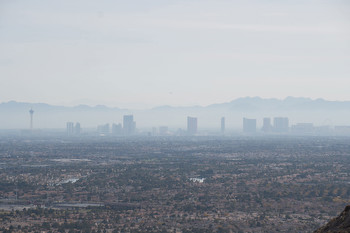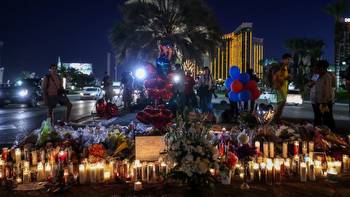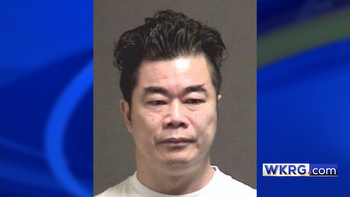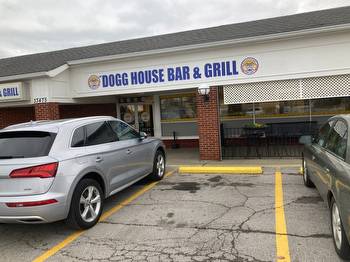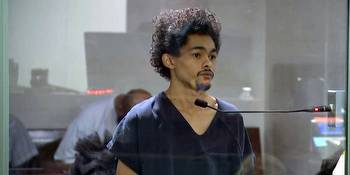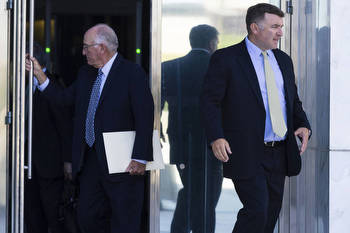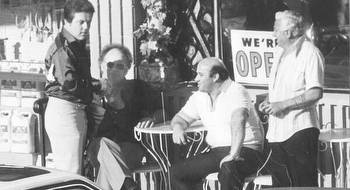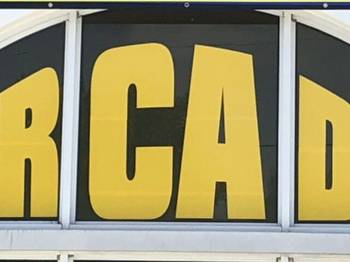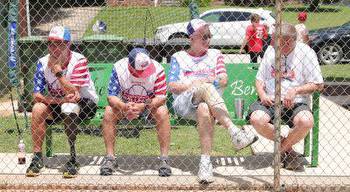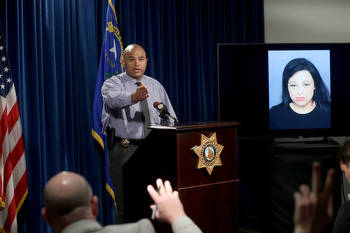A&E 'Undercover: Caught on Tape' Investigates Las Vegas Casinos Bombing Plot

Hear firsthand from criminal investigators as they revisit some of their most dangerous cases on Undercover: Caught on Tape. The new true crime series from A&E follows undercover agents who’ve often risked their lives taking on different identities to gather evidence and help take down criminals. Each episode includes surveillance video and audio recordings from actual investigations to reveal the critical moments that could make or break a case.
The premiere kicks off with a 1995 case centering on Jeffrey Tenpenny, who orchestrated a revenge plot that would have caused massive devastation if not for the work of undercover ATF (Bureau of Alcohol, Tobacco, Firearms and Explosives) agents including Jay Dobyns and Vince Cefalu. Tenpenny purchased bombs with the intent to blow up a series of Las Vegas casinos and assassinate the attorney for Steve Wynn. The two agents, who were pivotal in preventing tragedy from occurring, are among those who look back at their experiences.
Dobyns spent 27 years as a U.S. federal agent and was involved in more than 500 undercover operations, building a reputation as one of the most daring undercover operatives. He is known for infiltrating the notorious Hell’s Angels biker gang over two years. Here the veteran agent and best-selling officer explains why the Tenpenny case will always rank high in his career. He also reveals another episode that especially hits close to home.
What was your reaction when you found out the series would delve into the Tenpenny case?
Jay Dobyns: It was an overdue surprise because that case was a significant investigation. After it concluded, I was always stunned it didn’t get a little more attention. Nobody ever takes a badge or gun believing at some point what they worked on is going to be publicized. But in this bombing case, you had a guy there who was actively planning to set off IEDs in Las Vegas casinos, and it didn’t get much attention. It was ultimately explained to me that the media in Las Vegas initially put that on the back burner. They were like, “This town and the people thrive on tourism. Who wants a story on the front page that says three of our leading casinos were about to be bombed?” Now we’re at almost 30 years and A&E with this series is giving everyone a firsthand look at this case.
Not to mention this happened in 1995 when the Oklahoma City Bombing was very much in the headlines.
The fear factor in the public was extreme at that level. Really what led to the Las Vegas case was Timothy McVeigh’s bombing of the Murrah Federal Building. Intelligence showed us he had done some training and had associates within the Vegas area. It kickstarted our investigation that was already going on there. It put the spotlight on us to find out who else was within that universe of domestic lone-wolf terrorists. And we did.
There are a lot of things that could have gone wrong. Was there ever a point in time where you were seriously worried the cover would be blown?
You’re always concerned with maintaining your cover, protecting it. The closer and closer you go toward completion and success, the paranoia for that grows as well. You don’t want to make a mistake. You don’t want to do the wrong thing or say the wrong thing, especially at the last minute, that could compromise an important investigation.
As you reflect on this case all these years later, did it bring a new perspective?
It reinforced to me that in the world of law enforcement knowledge is power. And to gain that knowledge is through an infiltration where you’re putting a living, breathing law enforcement officer in the middle of the crime and allowing that person to come out and report that intelligence and evidence they are gathering in a first-person credible way. That was reinforced to me through the investigation. I had hundreds and hundreds of undercover assignments throughout my career. This has proven to be the most important one.
None of us have a crystal ball to say as investigators what we do and accomplish today might have prevented what happens tomorrow. You don’t get to do that. You go out and work your case and investigate it the best you can, but it’s not hard to speculate. If this scheme had come to be, the level of damage, death, and violence that would have been created very easily, theoretically could have been greater than what took place in Oklahoma City.
You’re also part of another case later in the season. What can you say about that one?
That was another case where we climbed the investigative ladder. We started with some low-level firearms purchases. It was a very standard ATF undercover operation that expanded into a home invasion scheme that brought in multiple suspects and ultimately defendants. I think what was interesting about that second case I’m in is that the primary defendant, after he and his crew were arrested and charged, he realized this drug runner, a gun runner was actually an agent.
He issued a murder contract on me from the jailhouse. What makes it even more interesting, and what I praise A&E for, is they found this guy and interviewed him. He did become reformed. He took a big lick. He was down for an extended period of time. Then recaptured his life and is now leading a productive life as a positive member of society. To my reluctance to some extent, they reunited us. This kid at the time who had grown into a man was remorseful and actually apologized face-to-face to me for the trauma he caused me and my family with those murder threats.
Amazing how the show created that unexpected opportunity.
It also caused me to reflect on just going through life, if I wanted a second chance for the mistakes I made. If I want forgiveness for the mistakes I made in my life, the first way to accomplish those is to extend those things to someone else. That was my attitude. I had to give that forgiveness. We had a face-to-face meeting in the studio during these interviews. Sometimes these things actually do have happy endings.
Do you feel the internet and social media have made it harder for agents to remain undercover?
Building and maintaining a cover story and background becomes more difficult because you don’t have to be an internet wizard to do research on someone and prove to yourself whether that person is real or not. Your presentation as an undercover operative goes much further than appearance. If it was just appearance, it would be easy. It’s not easy and extremely difficult and dangerous. Your background and credibility of your background is incredibly important. The ultimate thing in the world of undercover is what comes out of your mouth is the most important thing. Can you back up and validate what you say in the eyes of the suspect? That’s the question.
Undercover: Caught on Tape premiere, January 11, 10/9c, A&E










